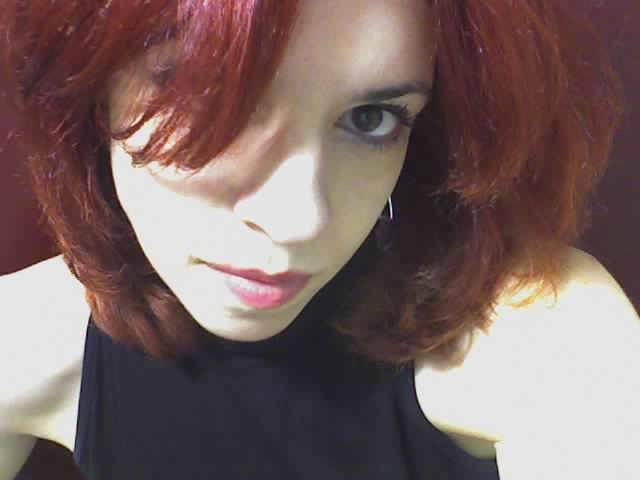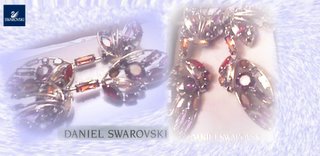I was fortunate enough to do a thing I love doing any day of any month of any year, but *especially* during Xmas. Go to the opera.
And not once but twice....well not the same opera....:)
I got to see Puccini's Madama Butterfly at the Greek National Opera and also Mozart's The Magic Flute at the Athens Concert Hall.
Both operas are to me precious, but for different reasons.
I love Italian opera. I really do. I know of many people who think of the opera as a really tiring and boring form of music or entertainment. But to me, the italian operas, Puccini, Verdi, are a rare form of pleasure.
Whenever I hear 'Nessun Dorma', the last aria Puccini ever composed, whenever I hear Violetta singing 'Amami Alfredo' in La Traviata, or Museta's Waltz in "La Boheme" , whenever I hear 'Vissi d'Arte' in Tosca ( I lived for my art, I lived for love ) , and finnaly whenever I hear Butterfly saying goodbye to her son before she dies in 'Tu? tu? Piccolo Iddio!' I feel the power of the music in my very soul.
Puccini was a great composer, a magician for me, who could with his librettos transform a few notes into emotions so powerful that you cannot stop yourself from weeping , not because of the tragedy of the lives of his heroes and heroines but also because all these people who had to die in these plays sung about how much they loved, adored , cherished life.
The same applies for Verdi, however his heroes were less helpless. Puccini's heroines are helpless, hit by the cruelty of life and humans, so fragile and yet so bright, a source of light and love, like a butterfly, that is destroyed when touched, her wings broken forever, unable to fly anymore. But her beauty is so utterly irresistible that men just have to take it, have it even for a moment and then destroy it.
To me that is the most tragic thing in his operas.
I lived for my art, I lived for love.
As for Mozart's Magic Flute, I have to say that as far as the music goes its not one of my favorites.
But......a big but.....the Magic Flute is a multilevel opera. Has a story that is so complex that once or twice is not enough to start to comprehend it.
Its probably the first opera parents take their kids, its fun and Xmas spirit. With Papageno and Papagena and the Prince Tamino and the Princess Pamina and Queen of the Night.
However this is not what this opera is about. Mozart wrote it just after the French Revolution and just before he died. Haydn had introduced him to FreeMasonry and its full of the ideals (the autonomy of the individual, self-determination, appalling sexism), the ideals (power, wisdom, beauty), and the symbols (aprons, hammers, compasses, a pyramid with an all-seeing eye) of the Masons.
The Magic Flute and the masons are something I shall write about in another topic when I'm more concentrated, now I'm just scratching the surface.
However there are many things to dig up in the masonic and tectonic tradition, in secret societies, in works of art like Da Vinci's Madonna of the Rocks (National Gallery in London and the Louvre) and the the myths concerning Christianity , the Holy Family and Mary Magdalene.
I know my friends are sick and tired of me always talking about this stuff but I am fascinated!
There's more I have to write in this post but since I have to get back to work I'll just write a few of my favourite lyrics:
Vissi d'Arte :
Vissi d’arte, vissi d’amore,
I lived for my art, I lived for love,
non feci mai male ad anima viva!
I never did harm to a living soul!
Con man furtiva
With a secret hand
quante miserie conobbi aiutai.
I relieved as many misfortunes as I knew of.
Sempre con fe sincera
Always with true faith
la mia preghiera my prayer ai santi tabernacoli sali.
rose to the holy shrines.
Sempre con fe sincera
Always with true faith
diedi fiori agl’altar.
I gave flowers to the altar.
Nell’ora del dolore
In the hour of grief
perche, perche, Signore,
why, why, o Lord,
perche me ne rimuneri cosi?
why do you reward me thus?
Diedi gioielli della Madonna al manto,
I gave jewels for the Madonna’s mantle,
e diedi il canto agli astri, al ciel,
and I gave my song to the stars, to heaven,
che ne ridean piu belli.
which smiled with more beauty.
Nell’ora del dolor
In the hour of grief
perche, perche, Signor,
why, why, o Lord,
ah, perche me ne rimuneri cosi?
ah, why do you reward me thus?
Tu? tu? Piccolo Iddio! :
Butterfly
You? you? you? you? you? you? you?
Tu? tu? tu? tu? tu? tu? tu?
(anxiously but
with great feeling)
My little God! Love, my love,
piccolo Iddio! Amore, amore mio,
my Lily flower of rosebud.
fior di giglio e di rosa.
(taking her son's head in her hands
and drawing him close to her)
Although you must never know it,
Non saperlo mai per te,
it is for you alone, for your innocent eyes that,
pei tuoi puri occhi,
(in a whisper)
Butterfly dies...
muor Butterfly...
because then you may
perché tu possa andar
travel beyond oceans
di là dal mare
and when you have grown up,
senza che ti rimorda
you will never feel remorse knowing
ai di maturi,
that your mother abandoned you.
il materno abbandono.
(with exaltation)
Oh, you who came down to me from
O a me, sceso dal trono
Heaven's highest throne,
dell'alto Paradiso,
look for the last time upon your Mother's face,
guarda ben fiso, fiso di tua
look closely at her face, closely,
madre la faccia!
so that some trace will remain, look carefully!
che ten resti una traccia, guarda ben!
Farewell my beloved! goodbye little love!
Amore, addio! addio! piccolo amor!
(in a faint voice)
Go and play, play!
Va, gioca, gioca!
P.S. Φριιιιιιιιζ!!! Φριζ λέω!!! Πουτ δε κοτ ντάουν σλόουλυ!!!!!!
(για να ευθυμήσουμε και λίγο)
















